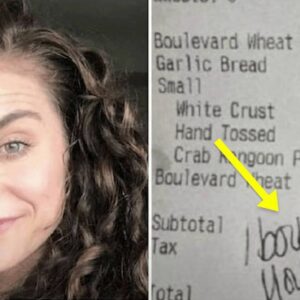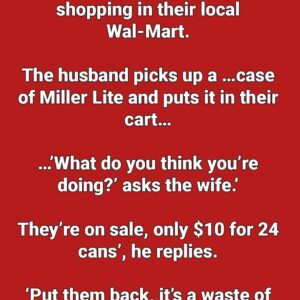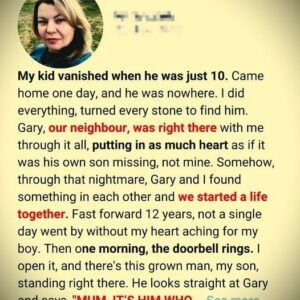Democrats say she needs to persuade voters she can better handle their top issue

Some strategists say Kamala Harris must do more to counter Donald Trump’s polling advantage on economic stewardship. Photo: Brian Cahn/Zuma Press
WASHINGTON—Some allies of Kamala Harris worry that the Democratic nominee has yet to seal the deal with voters as the presidential candidate who can best manage the economy, a task they say is crucial to building a durable lead in the battleground states.
The vice president has in short order lifted her party to a tie or slight advantage in opinion polls, and she delivered a strong performance against Donald Trump in their combative debate Tuesday. But Democratic and anti-Trump strategists say she also missed a chance to connect with voters over her economic plans and to chip away at Trump’s reputation for fostering a historically strong pre-Covid economy while he was president, which remains his most formidable asset as the Republican candidate.
Share of voters who say the candidate

Source: Pew Research Center survey of 4,842 adults conducted Aug. 26–Sept. 2,; margin of error: +/- 1.9 pct. pts.
“That is where Harris still has some work to do, which is to drive home the economic message, because she’s part of this administration that has lost credibility on economic issues,” said Evan Roth Smith, lead pollster at Blueprint, a Democratic polling initiative.
Despite releasing proposals to help consumers, parents, new home buyers and small businesses, Smith said, Harris hadn’t yet made her ideas credible enough to undecided voters, who “have real concerns in their life that aren’t being met by political leaders. That remains the No. 1 task for her campaign.”
Mike Murphy, a veteran Republican strategist who opposes Trump, agreed. “That’s the needle she’s got to move,” he said. “And she’s got to start working on it, because she didn’t really do it in the debate.”
Democrats hope that a recent run of good economic news could give them a boost. Reports this week that inflation continues to cool and that household incomes had risen to about pre-Covid levels could help Harris answer a question from moderators that she ducked at the debate: Are Americans better off than they were four years ago?

Undecided voters in a recent Journal poll indicated they think former President Donald Trump would be a better economic manager than Kamala Harris. Photo: Roberto Schmidt/Agence France-Presse/Getty Images
Polling shows that voters remain agitated about inflation, and that they see Trump as the better bet for taming prices. In Wall Street Journal polling late last month, 38% of voters said the cost of living was still rising and causing major strains for their families, a record high dating to late 2021. Trump was winning 71% of those voters. An additional 26% said rising costs were causing them minor financial strains.
Voters still up for grabs and available to either campaign were more likely than voters overall to say the economy and inflation were their top concerns. Reflecting on the overall economy, voters in the Journal poll said Trump would be a better economic manager than Harris by 8 points, a lead that stood at a lopsided 43 points among up-for-grabs voters.
James Carville, the longtime Democratic strategist, said the Federal Reserve’s likely decision next week to cut interest rates could help improve the public mood. Even if Harris can’t persuade Americans to feel good about the economy, he said, an interest-rate cut and other good economic news could help her argue that voters are making gains, and that those gains are at risk if Trump is elected.
“Actually having headlines that there’s been an interest-rate cut—that could impact people,” Carville said. “I don’t think the potential is to convince people that it’s better than you think it is,” he said, referring to the economy. “But you might convince people that you have something to lose.”
Trump has been arguing that Harris’s economic agenda doesn’t present fresh ideas but rather continues the policies of President Biden, which have little credibility with voters. His campaign released a video ad Friday that shows Harris praising “Bidenomics” and includes Trump saying during the debate: “She doesn’t have a plan. She copied Biden’s plan.”
Micah Roberts, a Republican pollster who surveys voters on views of the economy for CNBC, was skeptical that Harris could overcome the feeling among Americans that the economy was robust when Trump was in the White House and had weakened under Democratic leadership.
He pointed out that in CNBC surveys, Americans have been continually pessimistic rather than optimistic about the economy since 2008 except during two years—2018 and 2019—when Trump was president.
“And the bad news for Harris is that the pessimism hasn’t fallen between 2021 and 2024,” Roberts said. He was skeptical that Harris could diminish voter perceptions of Trump as the better economic steward.
Like Trump, Harris has proposed ideas that draw strong voter support in public opinion polls. Cast as elements of her “opportunity economy” agenda, the proposals include initiatives to cap insulin and drug costs, give a tax break to parents of newborns and fight alleged price-gouging by food companies. But they draw criticism from many economists—who say some of them are poor or even counterproductive policy—and caution from budget hawks who have tallied the costs as reaching into the trillions of dollars.
View of current and future economic conditions

In interviews after the debate, several undecided voters told the Journal that they didn’t have a clear sense of how Harris’s plans would help them. Democrats and strategists who want Harris to win the election say that while many of her ideas are politically potent, she hasn’t presented them yet in a way that makes them concrete and believable to voters.
“There are ideas that sound too much like white papers, too much like things that can be watered down by Congress or sound like every other politician—a tax credit for these people or those people,” said Smith, the Blueprint pollster. He said his group found that a broad idea, such as a middle-class tax cut, had a greater impact on voters than Harris’s more targeted tax proposals.
Ruy Teixeira, a political analyst who has written extensively about how voters perceive Democratic policy, called Harris’s proposals “mini-plans” and said her “opportunity economy” theme “is almost so vague as to be almost meaningless.” He said the ideas were unlikely to resonate with the group Harris needs most—working-class voters in swing states.
“If you talk about throwing money to first-time home buyers and vague plans to hold down prices, I don’t know if it’s enough,” said Teixeira. He said Harris might need to make a dramatic gesture to show voters that she will chart a different course than Biden, such as “breaking from the Biden administration in a more ostentatious way” on a policy matter.

Harris’s proposals include initiatives to cap insulin and drug costs, give a tax break to parents of newborns and fight alleged price-gouging by food companies. Photo: Samuel Corum/Press Pool
Harrison Hickman, a Democratic pollster, suggested that Harris tell voters in more concrete terms how her plans would work. “In starting a business—explain how the process would work compared to what’s in place now,” he said, referring to her proposal for an expanded small-business tax break. “Showing how it works now and how it can be improved and implemented would get her more than any rhetorical flourishes.”
Harris has unveiled new TV ads that might accomplish some of what the strategists suggest. “Kamala Harris is focused on you,” says one ad released in early September, which argues that Harris will help middle-class families while Trump aims to benefit the wealthy. Trump has argued, by contrast, that Harris has had more than three years in the Biden administration to carry out her own ideas.
SHARE YOUR THOUGHTS
How can Kamala Harris narrow the voter gap on economic issues? Join the conversation below.
The candidates likely won’t have a second chance to argue their points on a debate stage, as Trump said Thursday that he wouldn’t participate in a second televised face-off.
Murphy said Harris probably has a make-or-break challenge in persuading voters that she will help them economically. “If she’s good at it and connects, she’ll be in an extremely strong position,” he said. “If she’s perceived as more of the same on the economy, then I think Trump can win.”





